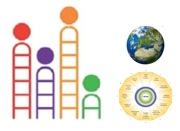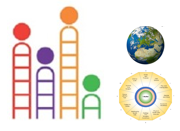Jekyll and Hyde Behaviour?
Parents quite often describe their child as like Jekyll and Hyde. There is often confusion about why things change so fast
Just because your child is 10 years old, does not mean that your child is functioning in the moment like a 10 year old
In my work I meet a lot of families of children who have developmental delays. Some of these developmental delays are VERY easy for an uninformed observer to miss and it is these more subtle delays that often lead to the greatest confusions for families and for teachers. Developmental immaturity is one of the key reasons for that common experience of feeling that your child is like 'Jekyll and Hyde' - wonderful and loving one minute and then in aggressve meltdowns the next. Does that sound familiar?
Here are some key ideas:
i) Child development is hierarchical - what this means is that you have to develop key skills first for other skills to develop. Therefore mature graded flexible thinking replaces black and white thinking only if a child has enough support to master the foundations of self-awareness. Failure to master early reflective thinking steps is like building a very shaky wall with very poor foundations. It can be considered a hidden disability.
ii) Child development is comprised of several different key strands. These strands include physical development including gross motor and fine motor skills, language and communication development, social-emotional development, play skills and thinking skills development. These can develop at different rates. So your child may be physically and even verbally quite skilled but still have key social-emotional delays/
iii) One absolutely fundamental requirement for healthy social-emotional and the emergence of more mature thinking skills development is a strong, supportive and effective adult-child relationship. So if you want to see mature behaviour and thinking emerging, you have a very key role to play as the adult figure.
iv) Children can have gaps and subtle delays in their development which make it difficult for them to manage the age-typical situations that they find themselves, in leading to much more rapid and easily triggered states of overwhelm and challenging behaviour. If you see your child as just 'naughty' or 'difficult' you will exacerbate their difficulites. They need your support to learn new thinking skills.
v) The age at which a child is functioning can vary over time. Under stress children and adults will regress developmentally, displaying the needs of a younger child. Children who have experienced early disrupption or trauma are much more sensitive and much more likely to be functioning like a younger child and therefore need the care and pace that a younger child needs.
If you have a child who is displaying challenging behaviour it is vitally important to learn more about child development and the impact of trauma and about your own role. It is vital to think about whether your child may be finding some things much more difficult than you are realising.
If you over-estimate what your child can manage you may find that you are living with a child who feels impossibly difficult. Slow things down - start watching carefully - make time for reflection and for connection. This is what will deliver long-term results.
Developmental thinking is really interesting and really helpful!
Click here for more information about the i Matter Project
Coptyright CBetoin 2016 All rights reserved
Just because your child is 10 years old, does not mean that your child is functioning in the moment like a 10 year old
In my work I meet a lot of families of children who have developmental delays. Some of these developmental delays are VERY easy for an uninformed observer to miss and it is these more subtle delays that often lead to the greatest confusions for families and for teachers. Developmental immaturity is one of the key reasons for that common experience of feeling that your child is like 'Jekyll and Hyde' - wonderful and loving one minute and then in aggressve meltdowns the next. Does that sound familiar?
Here are some key ideas:
i) Child development is hierarchical - what this means is that you have to develop key skills first for other skills to develop. Therefore mature graded flexible thinking replaces black and white thinking only if a child has enough support to master the foundations of self-awareness. Failure to master early reflective thinking steps is like building a very shaky wall with very poor foundations. It can be considered a hidden disability.
ii) Child development is comprised of several different key strands. These strands include physical development including gross motor and fine motor skills, language and communication development, social-emotional development, play skills and thinking skills development. These can develop at different rates. So your child may be physically and even verbally quite skilled but still have key social-emotional delays/
iii) One absolutely fundamental requirement for healthy social-emotional and the emergence of more mature thinking skills development is a strong, supportive and effective adult-child relationship. So if you want to see mature behaviour and thinking emerging, you have a very key role to play as the adult figure.
iv) Children can have gaps and subtle delays in their development which make it difficult for them to manage the age-typical situations that they find themselves, in leading to much more rapid and easily triggered states of overwhelm and challenging behaviour. If you see your child as just 'naughty' or 'difficult' you will exacerbate their difficulites. They need your support to learn new thinking skills.
v) The age at which a child is functioning can vary over time. Under stress children and adults will regress developmentally, displaying the needs of a younger child. Children who have experienced early disrupption or trauma are much more sensitive and much more likely to be functioning like a younger child and therefore need the care and pace that a younger child needs.
If you have a child who is displaying challenging behaviour it is vitally important to learn more about child development and the impact of trauma and about your own role. It is vital to think about whether your child may be finding some things much more difficult than you are realising.
If you over-estimate what your child can manage you may find that you are living with a child who feels impossibly difficult. Slow things down - start watching carefully - make time for reflection and for connection. This is what will deliver long-term results.
Developmental thinking is really interesting and really helpful!
Click here for more information about the i Matter Project
Coptyright CBetoin 2016 All rights reserved
Categories
- About this blog (1)
- Relationship Health (1)
- Impact Stories (7)
- Nuggets and GEMS (1)
- Audio (1)
- Videos (1)
- Professionals (43)
- Parents-Carers (4)
- Young People (2)
- Workplace (1)
- Schools (4)
- Health (5)
- Theory to Practice (13)
- Recent Feedback (9)
- Why I Matter? (8)
- Miscellaneous (18)
- 2019 (14)
- 2018 (5)
- 2016 (4)
- 2015 (6)
- 2014 (23)
- 2013 (8)


0 comments
Leave a comment
Please log in or register to post a comment